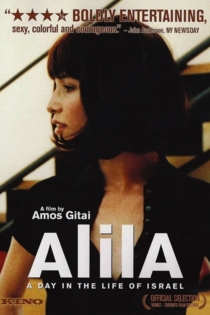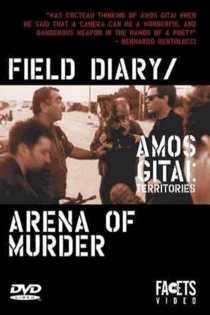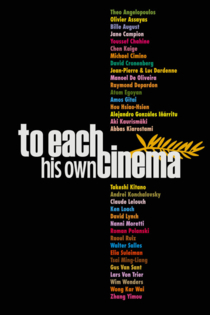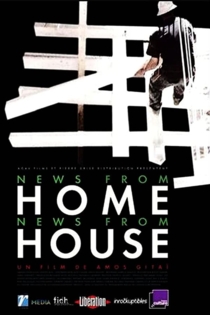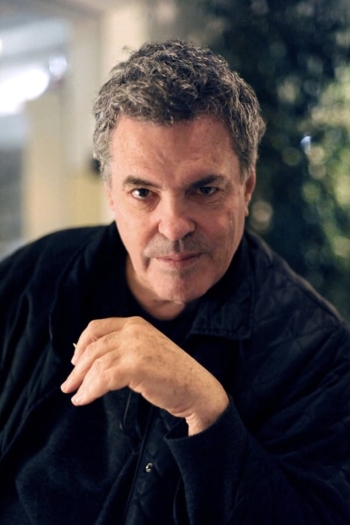
Amos Gitai
1950 (75 лет)Amos Gitai (born 11 October 1950 in Haifa, Israel) is an Israeli film director.
Description above from the Wikipedia article Amos Gitai, licensed under CC-BY-SA, full list of contributors on Wikipedia.
Kadosh
Amos Gitai
Yaël Abecassis, Yoram Hattab
The year 2000 approaches in Jerusalem's Orthodox Mea Shearim quarter, where the women work, keep house, and have children so the men can study the Torah and the Talmud. Rivka is happily and passionately married to Meir, but they remain childless. The yeshiva's rabbi, who is Meir's father, wants Meir to divorce Rivka: "a barren woman is no woman." Rivka's sister, Malka, is in love with Yakov, a Jew shunned by the yeshiva as too secular. The rabbi arranges Malka's marriage to Yossef, whose agitation when fulfilling religious duties approaches the grotesque. Can the sisters sort out their hearts' desires within this patriarchal world? If not, have they any other options?
Kadosh
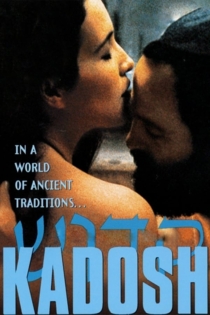
11'09''01 - September 11
Idrissa Ouédraogo, Alejandro González Iñárritu
Ernest Borgnine, Maryam Karimi
Filmmakers from all over the world provide short films – each of which is eleven minutes, nine seconds, and one frame of film in length – that offer differing perspectives on the 9/11 terrorist attacks.
11'09''01 September 11
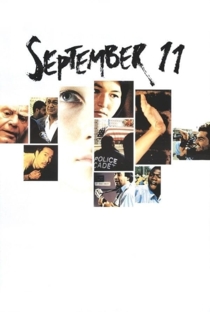
Bayit
Amos Gitai
House is the story of a house in West-Jerusalem: abandoned during the 1948 war by its owner, a Palestinian doctor; requisitioned by the Israeli government as "vacant'; rented to Jewish Algerian immigrants in 1956; purchased by a university professor who undertakes its transformation into a patrician villa... The building site is like a theatre in which the former inhabitants, the neighbours, the workers, the builder and the new owner all appear. Israeli television censured the film. "Gitai wants this house to be both a symbol and something very concrete; he wants it to become a character in a film. He achieves one of the most beautiful things a camera can register 'live', as it were; people who look at the same thing but see different things - and who are moved by that vision. In this crumbling shell of a house, real hallucinations begin to take shape. The film's central idea is simple and the film has simply the force of that idea, no more, no less."
House
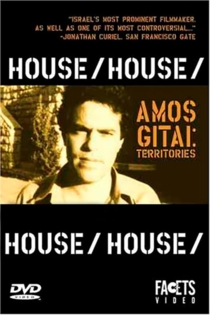
Brand New Day
Amos Gitai
Annie Lennox, David A. Stewart
Japan, 1986. At the tail end of the world tour promoting their latest album Revenge, Eurythmics tops the charts. Between concerts, pop duo Annie Lennox and Dave Stewart survey Japan's cultural soundscape with the help of Conny Plank: A world of sounds both brutally technological and highly refined by tradition.
Brand New Day

West of the Jordan River
Amos Gitai
Amos Gitai, Yitzhak Rabin
Amos Gitai returns to the occupied territories for the first time since his 1982 documentary FIELD DIARY. WEST OF THE JORDAN RIVER describes the efforts of citizens, Israelis and Palestinians, who are trying to overcome the consequences of occupation. Gitai's film shows the human ties woven by the military, human rights activists, journalists, mourning mothers and even Jewish settlers. Faced with the failure of politics to solve the occupation issue, these men and women rise and act in the name of their civic consciousness. This human energy is a proposal for long overdue change.
West of the Jordan River
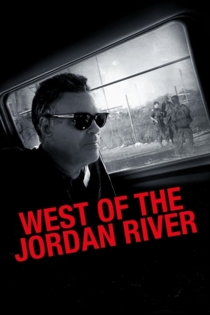
Kippur
Amos Gitai
Liron Levo, Tomer Russo
The film takes place in 1973 during the Yom Kippur War in which Egypt and Syria launched attacks in Sinai and the Golan Heights. The story is told from the perspective of Israeli soldiers. We are led by Weinraub and his friend Ruso on a day that begins with quiet city streets, but ends with death, destruction and devastation of both body and mind. Various scenes are awash in the surreal, as Weinraub's head hangs out over a rescue helicopter's open door, watching with tranquil desperation as the earth passes beneath, the overpowering whir of the blades creating a hypnotic state. It is not a traditional blood, guts and glory film. There are no men in battle, only the rescue crew trying to pick up the broken pieces.
Kippur
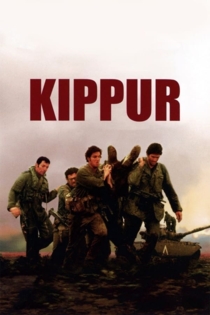
Bem-Vindo a São Paulo
Renata de Almeida, Yoshishige Yoshida
Caetano Veloso
All the feature is given prestige to by the narration in Caetano Veloso's voice, that also signs one of the segments of the project. São Paulo is the largest city of the Southern Hemisphere, with an incessant dynamics of cultural mixtures, with immigrants of all the world and migrants of all parts of Brazil. The gathering of these peculiarities are seen through the 13 film directors's sensibilities and their segments.
Welcome to São Paulo
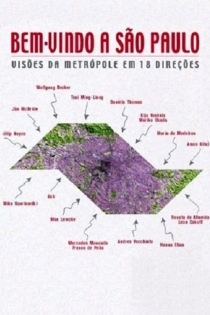
Words with Gods
Hideo Nakata, Warwick Thornton
Miranda Tapsell, Chico Diaz
The first of four installments in the groundbreaking Heartbeat of the World anthology film series. Comprised of several short films by some of the world's most exciting directors, Words with Gods follows the theme of religion - specifically as it relates to an individual's relationship with his/her god or gods...or the lack thereof. In Words with Gods, each director recounts a narrative centered around human fragility, as well as environmental and cultural crises involving specific religions with which each has a personal relationship; including early Aboriginal Spirituality, Umbanda, Buddhism, the Abrahamic faiths, Hinduism, and Atheism. An animated sequence by Mexican animator Maribel Martinez is woven through each of the film segments, with each segment narratively connected as a feature-length film.
Words with Gods
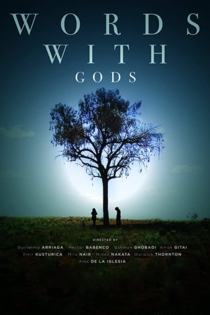
Bait be Yerushalayim
Amos Gitai
Can a house be a metaphor for Arab-Jewish relations in Israel? Amos Gitai returns to the house in West Jerusalem he profiled in 1980. He interviews members of the Jewish families who live there, and he talks with the Arab family who lived in the house until 1948. They are now in East Jerusalem and pay a nearly furtive visit to the street in front of their old house. Gitai also interviews Palestinian laborers at work on renovations and excavating an old tunnel to the Holy Mount. What do people think of each other, what do they think of Israel, what do they think of co-existence? Do the current residents know the house's history?
A House in Jerusalem
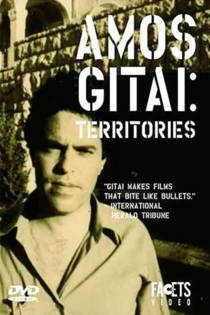
Alila
Amos Gitai
Yaël Abecassis, Hana Laslo
Life in a Tel Aviv apartment complex, an urban mosaic whose seedy characters, try as they might, can't get out of one another's faces. Gabi, a bobbed haired sexpot, and her lover Hezi—who's older, balding and married—rent a room to have an affair, while Ezra, a pot bellied divorcee, supervises an illegal construction site next door. All this racket drives Schwartz, a Holocaust survivor, to a mental breakdown. Other characters include illegal Chinese immigrants, a teenage boy who's afraid to serve in the army, and a corrupt police detective.
Alila
